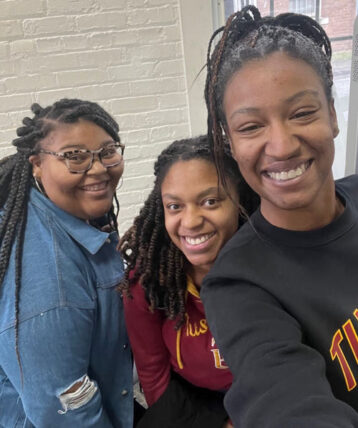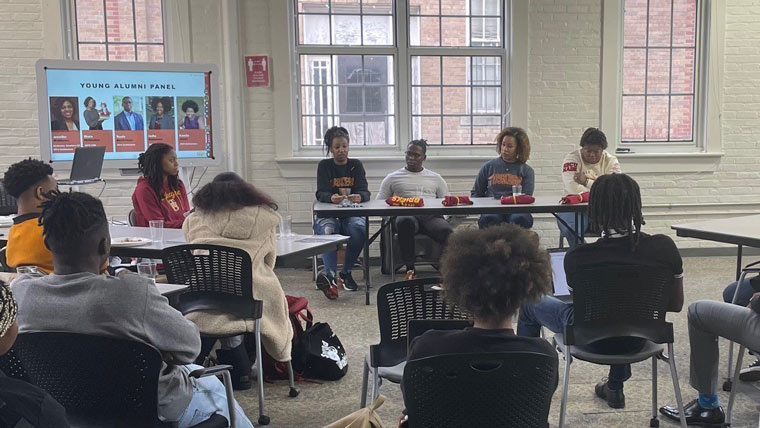February is Black History Month, a time to celebrate the contributions that Black Americans have made to our society—and our industry. Despite the many Black professionals who have helped shape the architecture, engineering, and construction (AEC) field, there is still a large disconnect between the industry and Black professionals. To combat this disconnect, it is important for our industry to be more proactive in promoting diversity within its firms.
Mead & Hunt’s own Iesha Roberson, a Tuskegee University alum, represented Mead & Hunt at the Robert R. Taylor School of Architecture and Construction Science’s 6th annual Design and Construction Management Expo. At this event, there were over 30 supporting firms that participated in company informationals, seminars, interviews, portfolio/resume critiques, studio crawls, and presentations.
Iesha was asked to teach a one-hour Revit class, and she was also invited to share her post-graduate experience with students through a discussion panel alongside other young alumni. At this panel, they discussed working in the AEC industry, but the majority of the questions students asked were geared toward the struggles the panelists had gone through and how they overcame and conquered those challenges. These discussions aimed to inspire the new generation of Black AEC professionals, promoting diversity and inclusion within our industry.
“We tend to forget that [the students] are not aware of how things are unless we as professionals teach them,” says Iesha. “I want to help close the gap on this.”

At Mead & Hunt, we value a workplace that is respectful and allows all employees to have a voice within the company. This is why we focus so strongly on diversity, equity, inclusion, and belonging (DEIB). With Iesha’s outreach at Tuskegee University, providing mentorship and networking for future AEC professionals, we are addressing the disconnect that Black professionals face. Mead & Hunt aims to create a pathway for underrepresented groups to enter the field, strengthening our firm and the AEC industry as a whole. This is important in order to create a larger pool of different ideas and come to more informed decisions. We empower our employees to suggest improvements and initiate change so we can do what’s right for our clients and our communities.


